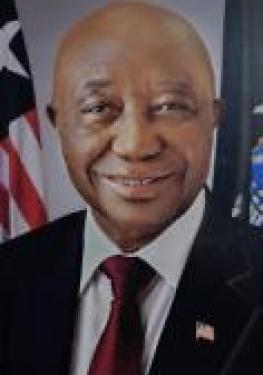Liberia ratified the United Nations Framework Convention on Climate Change (UNFCCC) and the Kyoto Protocol in 2002 and has implemented a number of climate change related programs. Liberia submitted her first national communication to the UNFCCC on its climate change enabling activities in 2012. During the run-up to UNFCCC COP21 in Paris, Liberia submitted its Intended Nationally Determined Contribution (INDC) in September 2015 and ratified the Paris Agreement in 2018. Liberia’s long-term vision is to transform the country into a climate resilient economy with secured low-carbon energy supply, green services, and industry. The Liberia NDC envisages reducing emissions and the country’s vulnerability to climate change by 2030. It covers a broad range of sectors including agriculture, forestry, fisheries, health, waste, energy, transport, coastal adaptation, Short-Lived Climate Pollutants (SLCP – pollutants from burning waste) and Green Corridor (greening the cities). For each sector, the NDC provides a list of suggested measures to achieve adaptation and mitigation targets. In the Paris Agreement, equal weight is given to both adaptation and mitigation sectors, together actions along any of these tracks are regarded as climate actions.
Liberia has started its NDC revision process, which must be finalized by June 2021. The Environmental Protection Agency (EPA) leads the coordination and implementation of international environmental treaties which Liberia is a part of including the Paris Agreement under the UNFCCC.
A Technical Validation and Costing Workshop for the Revision of Liberia’s NDC commenced on April 13, 2021 with support from Partners of the EPA including Conservation International, (CI), the United Nations Development Program (UNDP) and European Union (EU) Climate Change Alliance+ Project. Over 80 participants were present including technical experts from the EPA, Forestry Development Authority, Ministry of Agriculture, Ministry of Mines and Energy, Ministry of Health, National Public Health Institute of Liberia, National Fisheries and Aquaculture Authority, the private sector, as well as City Mayors from Gbarnga, Ganta and Buchanan. The objective of the workshop was for participants to recommend updated climate change mitigation and adaptation measures, targets and action plans to ensure that the NDC will be conclusive, cost-effective and inclusive.
Jefferson F. Nyanibo, EPA’s Multilateral Environmental Agreements (MEAs) Manager, opened the workshop on behalf of the Executive Director/CEO, Professor Wilson K. Tarpeh. Mr. Nyanibo said, “I feel that we Liberians are able to present on our various sectors if the task was given to us. We have more events coming where Liberians will be able to show their talents. NDC has to be Liberia owned and Liberian driven. This is how Liberia will contribute to the global objective of reducing emissions as Liberia is a carbon sink and should attach value to what we are contributing to the global community.”
The first presentation by John F. Kannah, NDC Coordinator, focused on the long-term NDC targets such as reducing greenhouse gases (GHGs) by at least 10%, improving energy efficiency by at least 20%, raising Liberia’s share of renewable energy to at least 30% of electricity production and 10% of overall energy consumption by 2030. Other targets include replacing cooking stoves with low thermal efficiency (5-10%) with the higher efficiency (40%) stoves. At the end of his presentation, Mr. Kannah said, “Liberia’s NDC aims to help reduce global temperature to 1.5 degrees.”
Dr. Manuel Fuentes, European Union Long Term Technical Assistance (LTTA) Project Team Leader also shed light on sector targets, projects and priorities with respect to mitigation actions in the energy, transport and waste sectors. He said, “Let’s concentrate on things that can be done in the next 5-10 years instead of setting overly ambitious targets. If the NDC actions for the energy sector are taken, Liberia can reduce emissions to 0 by 2030. The most important measures we have to take is in the energy sector, particularly utilizing the hydro dam which produces clean energy and addressing power theft. In the transport sector, Liberia needs to switch to electric kekes (tricycles).” In the waste sector, he recommended that Liberia needs better equipment to transport waste from the household to the land-fills. “All of these measures require money, so we need a political decision to allocate funds to these measures,” he said.
Peter Mulbah, Country Director for Conservation International presented on how GHG and spatial data can support the formulation and implementation of the NDC. Kumeh Assaf, Key Expert II for the EU Climate Change Alliance+ Project, presented on the institutional arrangements and partnerships that are in place to ensure a successful submission of Liberia’s revised NDC.
In his remarks during Day 2’s deliberations, Benjamin S. Karmorh Jr., Chief Technical Advisor to the Executive Director/CEO of EPA mentioned, “By now, everyone is in agreement he that climate change is affecting our development agenda. A temperature increase above 2 degrees Celsius would be catastrophic for the whole world. We have been able to receive overwhelming support from the Government of Liberia and international partners. We have 86 days to complete this work of revising Liberia’s NDC and this includes weekends and holidays if we must complete on time.”
E. Abraham Tumbey, UNDP Program Manager, also weighed in on the international support Liberia is receiving. He said, “Liberia just received 17.5 million Euros from the European Union to implement activities geared towards protecting our coastline, but we shouldn’t wait another 10 years before we can acquire more funds. We have to keep applying for international climate finance that are available because we have a lot of work to do.”
Patricia Togba, Technical Assistant to the Deputy Minister for Research, Policy and Planning at the Ministry of Gender, Children and Social Protection who was one of the national experts that received training on submission of budget allotment for unconditional NDC commitments said in an interview, “I’ve learned a lot from this workshop. It helped me understand how planning and budgeting is done in other ministries and agencies particularly around climate change. I want to also recommend that we put a technical team together to look at different grants and see how gender can tap into them because women and children are the most vulnerable when it comes to climate change impacts and they are engaged in the use of natural resources.”
On day 4, the Honorable Executive Director/CEO of the EPA, Professor Wilson K. Tarpeh made several inspirational remarks. He said, “I feel privileged that I’m the Supervisor of some of the best minds in Liberia. This government will commit itself to protecting the environment because it is an integral part of our economic development. Our major challenge is to globalize environmental issues throughout this government by sharing more information. With all our partners on board, we can make this happen. Your technical skills must be harnessed in order to provide all the empirical evidence needed to communicate climate change issues to key decision makers.”
After the 4-day workshop, technical reports from the 10 sectors were validated and it is expected that the knowledge level of national experts who are budget planners and analysts was increased with respect to climate change investment and budgeting. A desk is being established at the Ministry of Finance and Budget Planning to help budget technicians ensure that climate change is mainstreamed in the national budget process.
The next steps include the organization of three regional workshops across the country in May 2021 to take the validated documents from the technical workshop to the rest of the population through their respective representatives, raise awareness and provide updates on the status of Liberia’s NDC process. After the regional workshops, the NDC final validation will be incorporated into the National Conference on the Environment being organized by the Government of Liberia through the EPA in the first week of June 2021. The overall target is to submit Liberia’s revised NDC in the same month.



